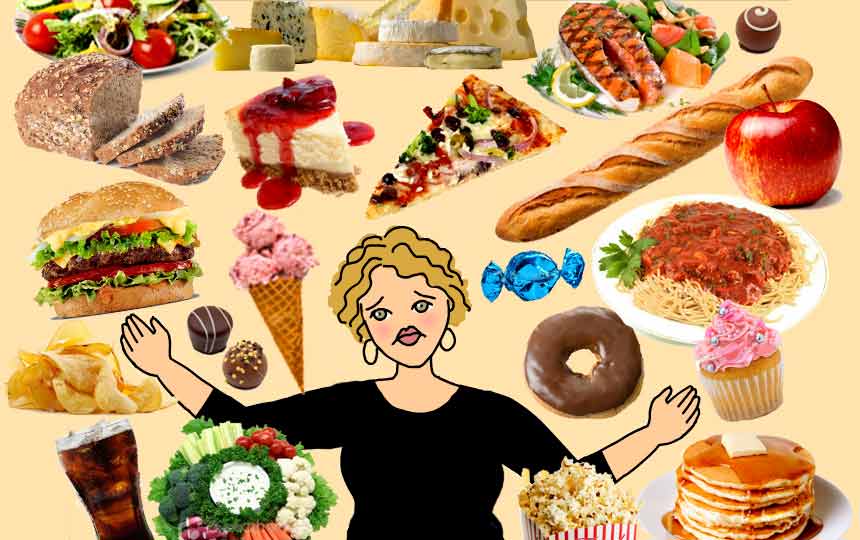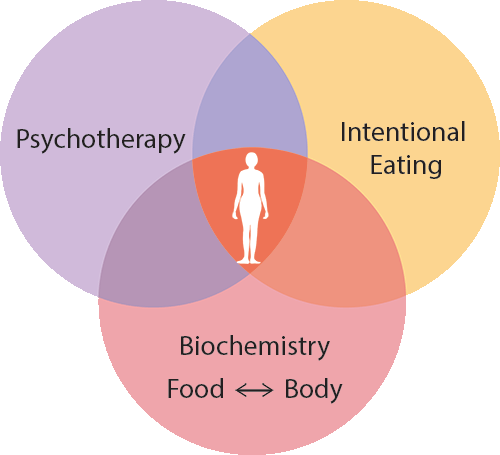
Eating Disorders: My Approach
In treatment we will focus on three areas:

- Psychotherapy, we will work through emotional issues that fuel your compulsive eating
- Intentional eating, we focus on healing your relationship to food
- Biochemistry, we explore how you use food to self-medicate anxiety and depression.
Working in all three areas is necessary for a full healing.
Psychotherapy
When you were a baby you suckled and eat for comfort. As an adult, if healthy, reliable sources of comfort are not available to you, you continue to seek comfort in food. Food causes chemical changes in your body. Some foods affect your mood, helping you feel calm or sedated. Other foods are stimulating, and give you a false sense of energy. In therapy, we work to understand why you turn to food to self-medicate. We explore family-of-origin issues and learn how you cope with stress. Together we assess if you are struggling with depression or anxiety.
Intentional eating
After years of disordered eating and/or dieting, you may have difficulty reading your body's signals of hunger and satiety. You may be addicted to certain foods which make it difficult to separate true hunger from addictive cravings. We will work together to help you move forward into self-awareness, balance and freedom from disordered eating.
Biochemistry
We know some foods may be addictive, especially sugar. Like cocaine and heroin, your body builds up a tolerance to these foods, and you crave them more and more. If sugar addiction is part of your disordered eating we will focus on harm reduction and moving toward a healthy relationship with all foods.
Freedom from compulsive eating
In treatment you will learn to:
- Develop healthy ways to handle life's challenges without overeating or restricting
- Address emotional issues that fuel your disordered eating
- Explore food addiction and what to do about it
- Learn to identify and respond to your body's natural hunger and satiety signals
- Learn to express your feelings, instead of bingeing, purging, or restricting food
- Achieve a comfortable relationship with food and your body
- Develop skills, such as self-soothing and impulse control
- Improve self-esteem
- Learn to set appropriate boundaries with people